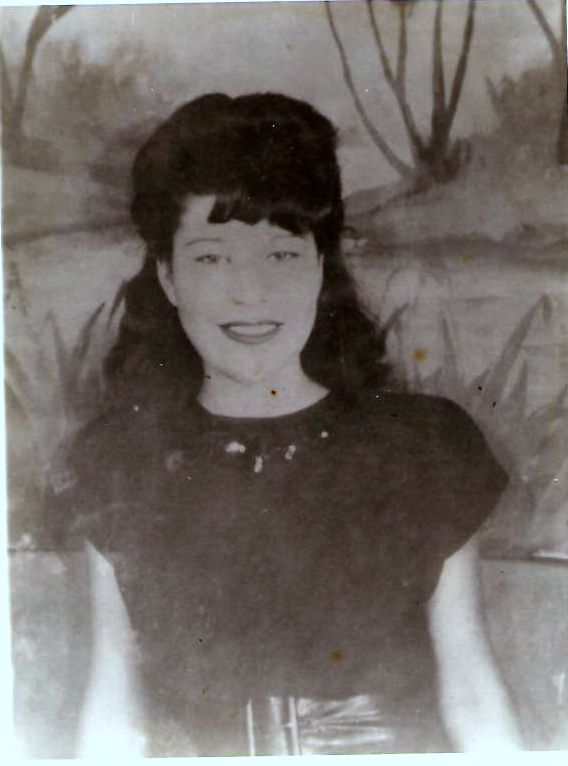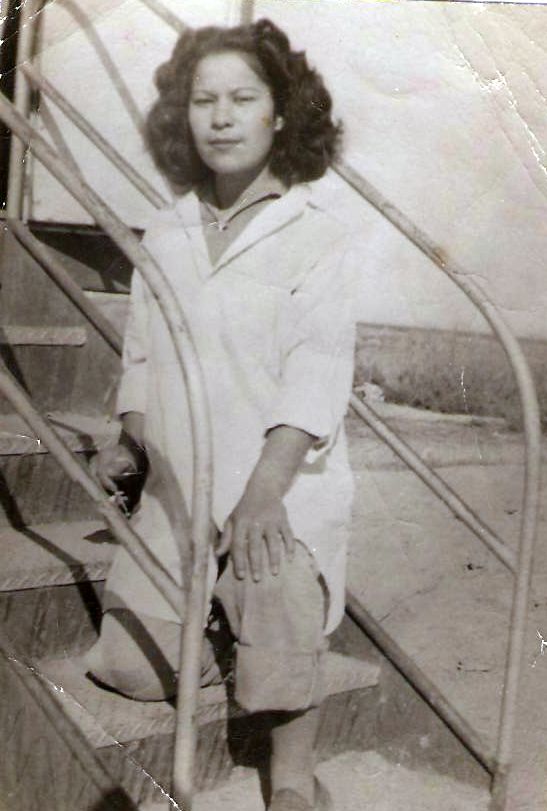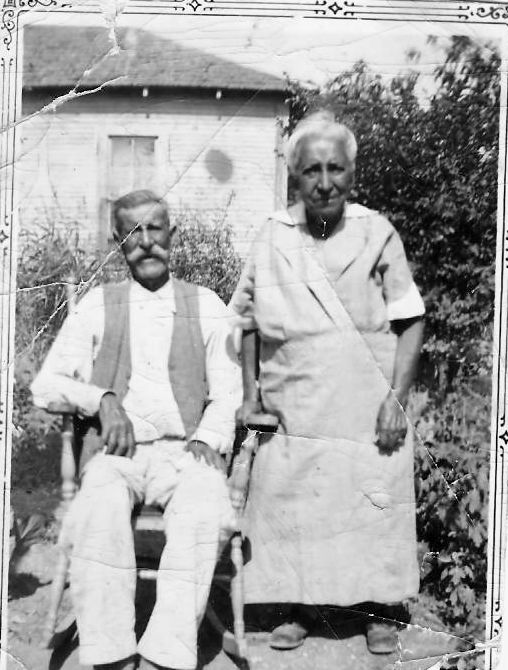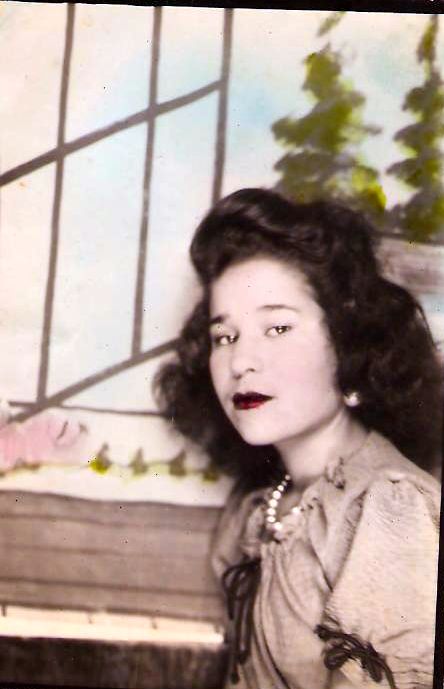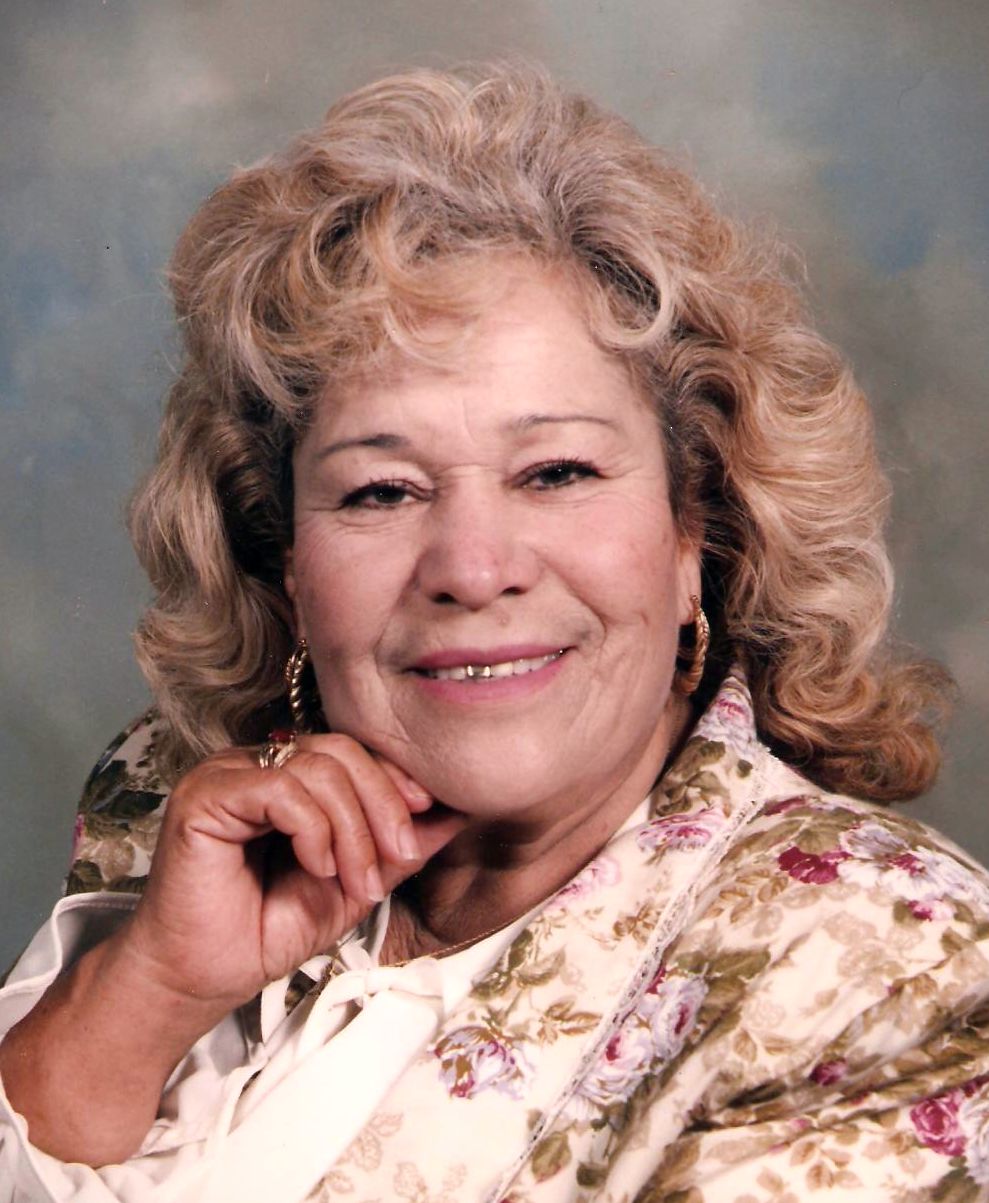Lucia Perez (nee Herrera )
San Antonio, Texas
March 30, 2008
Janine Sheree Duarte
Palo Alto College
History 1302 - Spring 2008
INTRODUCTION
Lucia Perez was born on October 16, 1931 to parents, Simon and Olivia Perez. Brought into the world and raised as an individual of low economic status, she recalls being a very hard worker as long as she can remember. With six brothers and two sisters, her life has always seemed to have a plate full of duty. For example, at the age of five she was already given responsibility to look after her younger siblings. She attends a nearby Christian church even though she was baptized as a Catholic at a very young age. When asked where she was born, a priceless smile and chuckle emerged from her face. She replied that she wasn’t sure if it still existed, but she was born in Schoolland Texas, which is located in Gonzales County. As a family that moved from place to place to find work, she has been to many different locations; mainly having settled within Arizona, California, Washington, and Texas for the longest periods of time. Work consisted of fieldwork, such as picking cotton, and a variety of fruits and vegetables. Field labor was a job she continued to do for the majority of her life. Lucia Perez married at the tender age of fifteen to Nicholas Mongia, in Florence, Arizona. They shared a happy life and managed to have ten children together before her husband’s death in 1961. As she currently resides in Von Ormy Texas, she leads a very mellow and peaceful lifestyle, much different from her younger days. With hobbies such as gardening, crocheting, embroidery, cooking, and minor household chores to pass the time, she has turned her home into a little paradise surrounded with beautiful flowers and plants, which couldn’t make her happier. She no longer needs to work, and makes a point to let her grown up children spoil her. Lucia Perez is my grandmother.
TRANSCRIPTION
Did you do any kind of work as a child? If so, what did you
do?
Just field work, like picking potatoes, grapes, cotton, picking green
beans, and all kinds of fruits and all, that’s all I ever knew how to do.
What was a typical day like for you?
Well, we would wake up and get right to work. If you were little, you
would help out with whatever you could do, or if you were older, you helped out
with the little ones. Something. We had to do
something. Carry in the water from outside or washing. We’d wash our clothes on
the washboard or hanging clothes outside [to dry] stuff like that. It was fun
for us because we could get wet.
What was something in particular that you remember about your household
chores?
The ironing. You had to heat the
iron up outside, and then spread a blanket on the floor, and iron on the floor.
Did you go to school?
Well, my dad said that women didn’t have to go to school because all they
had to learn was how to cook, take care of kids, and [field] work. They sent my
brothers, but not me.
How did you dress back when you were younger, and what type of look did you
go for?
Well, for me and work, my mother used to get me those pants with the
suspenders. I used to hate those pants. Also, the one’s that had buttons in the
back, oh my gosh. When we used to go out, she used to
buy me pretty dresses. At least, I thought they were pretty at the time. It was
a type of shiny material, but it was pretty. I also used to have tennis shoes,
I never liked them. As for “going out shoes”, we never went out, so we didn’t
need any beautiful shoes. It wasn’t until after the war that we were able to
get things like that.
What are some of the things that women have now that women didn’t have back
then?
Mija, they have everything. I
think they have more than what they need.
Were you concerned with women’s rights?
Mija, I didn’t even know what the
word meant. I didn’t know anything. All we knew was that the boss was the man
of the house. That’s all I knew.
Did your family always have a car?
I remember my dad having a car when I was ten years old. My mother said
that my father also had a car before they were married. We thought it was
something out of this world, because we had a car. Yet, we never could learn
how to drive, because my dad didn’t want us using the car. I didn’t learn to
drive until after I got married. I had to learn by driving myself around the
ranch. He still doesn’t know that I learned that way because I used to steal
his truck, but that’s how I learned. Besides, the woman didn’t have to drive.
The man was supposed to do that. Anyway, we learned.
Were your parents very strict or lenient with you?
Well, they were [strict], but I guess they were right. I never would have
learned how to work, unless they made us work. It was alright.
Did your mother work?
She used to work in the fields too, with all of us, we all had to work in
the fields, bring in the water, help each other out, and we all had to do
something. But, yes, she worked.
While the war was taking place, did women have to work twice as hard, to
fulfill the duties of a man?
Well, my mom worked at the naval
base in Corpus Christi, and I guess they were serving food to the soldiers.
That’s all I can remember. She worked there for a while.
Can you recall any home remedies that you would use if you did happen to get
sick or feel bad?
For the flu, I think he [father] used to give us boiled lemon with one or
two aspirins.
Did you ever face any racism as a child?
The only thing was that we couldn’t eat in certain restaurants because we
were Mexican. When we wanted to eat a sandwich, they would give it to us
through a window, so we could eat it outside. We also couldn’t drink from the
outside faucets because we were Mexicans. Those moments were the only ones that
seemed surprising, but I was really young, so I didn’t think anything of it.
After you were married, how many children did you have?
Ten kids. That was a job. Now thinking
back, I don’t know how I took care of them all, but I did. They all came out
alright. I don’t know how I did it, but I did it. Well, when you have to do
something, you just got to do it.
Tell me about a memorable time in your life; one that you’ll never forget
one thing I’ll never forget is that they put us on a train, here in San
Antonio to send us to Colorado, to work picking sugar beets. We stopped at a
beautiful restaurant to eat, and walked inside to see large round tables, and
served food. There was a woman who asked us if all of us were Mexicans, we
said, “Well, yes we are workers.” And the woman said “Well I’m sorry, but you
can’t eat inside, you’re going to have to take your plate and eat it outside.”
The man who drove the train was a contractor, and decided to leave. The woman
then asked “who was going to pay for the food?” The contractor said “nobody is
going to pay for this, they didn’t eat it. If they can’t eat inside, we will
not pay.” We all got back on the train, and the man got us large cans of milk
and coffee, along with bread, and bologna. I’m not even sure if it was bologna,
but that was what we ate until they took us to a place we could work. From
Denver, they took us to different little towns. We were a large group of
people, and we were workers, yet we could not eat at that place. That is one
thing I never forgot because we were so hungry, and the tables were so pretty,
but we couldn’t eat.
Would you say you had a lot of friends growing up?
No. I couldn’t spend the night at anybody’s house, I couldn’t play ball, I couldn’t ride the bicycle, or wear a short dress. I
couldn’t even wear shorts or a bathing suit. I just had brothers, sisters,
sometimes cousins, no fun.
Did you make your own dresses?
Sometimes. Yet, sometimes [my mom]
could afford to get me a new one.
What would you do for fun when you were younger?
Well, sometimes we would go to the movies. At the time we would go, the
movies wouldn’t talk at the time so we would just look at the people running
back and forth. Those were the first movies that we saw. It wasn’t all that
fun. But to us, it was big because we had never seen a movie. I saw about two
or three movie like that, that didn’t talk. After that they started talking, it
was more fun then.
Was there a particular plate of food that you would eat most of the time?
Well, mija there was no food like now where you
can buy the tortillas already made. We had to make them, or we had to cook the
beans, potatoes, vegetables, or whatever was in the gardens. Plus, we lived too
far from the stores, and couldn’t afford to buy anything really. So everything
was made from home. It was unlike now, where you can go buy the meat or turkey,
already packaged or cooked. I guess it was good because nobody ever got sick.
It seems there is now a lot of sickness, and health problems, but back in my
younger times, everybody seemed happy, healthy, and singing. Maybe it’s just
that people like me were too busy, and did not have time to get sick. We never
went to the doctor, we would just use whatever we had at home if there happened
to be a cold or chicken pox
If you had the chance to do something different, from the beginning of your life
until now, what would it be?
Maybe I would have gone to school. That is one thing that I missed, and
maybe I would like to see how it is.
Is there anything else you would like to add to this interview?
I remember at the time when World
War II was happening, there was no elastic in the underwear. They would
hold up with buttons. If those things busted, that would be something! To me,
it was funny. Since I was very skinny, I used to have to sew them to my size.
Of course, it wasn’t funny at the time because I had to wear them, and so did
everyone else, but now I think it is sort of funny. I also remember that you
would have to buy tickets to get shoes. I remember going to the post office to
get a book. The book had little stamps to buy sugar, coffee, meat, shoes, and
things like that. My dad used to give them away because we didn’t have the
money to buy the shoes or the meat. He would only purchase the things that
didn’t need any stamp, like the pancake mix.
ANALYSIS
A few things I learned from doing this Oral History
project was that my grandmother carried an unbelievable amount of responsibility
with her role of a mother, having ten children, and her constant routine of
labor. Another interesting thing that she had to deal with was racism and
discrimination. My grandmother is a very light complexioned woman, and yet many
years of fieldwork in the sun gave away her true heritage of being Mexican. She
talked about the times of being shunned away from restaurants, and how it still
did not damage her pride as a person taking great achievement out of what she
has done with her life. She is truly a happy person, and that comforts me to
see that it is still possible to take the bad or unfair things out of life, and
embrace them to make you an overall better person. She has aged gracefully,
looks beautiful in person for such a long, labored life. I was in disbelief
when I was reminded that she was in her seventies! Some of the most important
points made in the interview were the lack of education, and communication
(without the money to afford a radio). Growing up, especially without any
media, she was in her own little world, and just did what she had to do to work
and get by with her dutiful life. She was affected by the wars, even if she was
unaware of them, as she talks about the pesky undergarments she remembers
wearing when she was a younger girl. Something that I did not know about my
interviewee was that she never went to school and worked in the fields. I also
did not know the name of my grandfather. When she explained things to me, she
made things sound so simplistic. Things just were the way they were, and you
had to do what you had to do. Of course, there were also those moments when you
could just see her eyes change as she reminisced to those moments of her
childhood she found fun or funny to share. These stories taught me a bit about
myself as well. There is an unbelievable amount of independence, education, and
entertainment available to women now. Overall, I believe that this project has
been an effective way to learn about the past because I feel as if I have
researched into unchartered information about the past, knowledge not found in
a book but personal experiences from a woman. No books, just down to earth
talk. I have never really been one to spend a lot of time with my grandma and
this gave me the perfect opportunity. I feel better knowing that I have more
insight as to what she has accomplished in life, and comfort knowing that she
was willing to have it written down. You can always go back to a textbook, but
people don’t last forever.
TIMELINE
· October 16, 1931 – Lucia’s life begins
· 1936 – Lucia is 5 yrs. Old and helps take care of her younger siblings
· 1941 – Lucia is introduced to fieldwork
· 1946 – Lucia marries Nicolas Mongia
· 1949 – Lucia gives birth to first daughter, named Marcella, on March 13
· 1951 – Gives birth to first son, named Martin, January 23
· 1953 – Moved from Arizona to California and gave birth to second son, named Mike, August 8
· 1954 – Gives birth to second daughter, named Martha, August 29
· 1955 – Gives birth to third son (my father) Leo, December 17
· 1956 – Gives birth to fourth son, Jimmy, November 12
· 1957 – Gives birth to third daughter, Margaret, November 16
· 1959 – Birth to twins, Dianna and JoAnne, June 16
· 1960 – Birth to final daughter, Pauline, August 30
· 1961 – Husband, Nicolas Mongia passes away (alcoholism)
· 1969 – Lucia gets her very own car (1969, 2 door, Chevy Impala)
· 1973 – Moves from Fresno, California to San Antonio, Texas in December
· 1974 – Father passes away, purchase of her current home
· 1985- Works in a school cafeteria for nine years
· 2001 – Mother passes away (natural causes)
· 2008 – Peacefully resides in her Von Ormy home with no plans to relocate
ANNOTATED BIBLIOGRAPHY
All 6 photos were provided by Lucia Perez.
This site carries vital information regarding the start and end of World
War II. Dates, and pictures are also provided.
This link will take you directly to the homepage of the Naval Air
Station, located in Corpus Christi. There are a variety of links containing
history and a site map.
The location of Schoolland Texas is shown with
a map.
This website shows the very homepage of Gonzales County, county offices,
district court, county information and more can be reached through this link.
Within this link, upcoming events, the latest news of incorporation,
election dates, and more can be found on Bexar County’s newest city, Von Ormy Texas.
Return to Oral
History Projects
